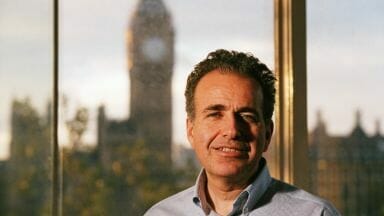London Medical Paediatrics
Paediatric allergy testing and treatment
Here at London Medical, we are dedicated to your child’s total health and well-being. Whether you are looking for ongoing paediatric support or a second opinion from a specialist paediatrician, our world-class consultants deliver care you can trust in a warm and comfortable environment.
We help manage childhood allergies
We understand the distress that accompanies your child’s first allergic reaction. Managing your baby or child’s allergy can impact your everyday life and pose a big challenge for the whole family. We can help identify the cause of the problem and develop a personalised care plan to reduce your child’s future risk.
Understanding allergies in babies and children
A childhood allergy happens when your baby or child’s immune system reacts to a normally harmless substance. Childhood allergies are widespread, with up to 40% of UK children diagnosed with an allergy.
Allergic reactions can range from mild and moderate responses characterised by itching, sneezing and discomfort to the most severe cases of anaphylaxis, a life-threatening allergic reaction.
The most common causes of allergic responses include:
- cow’s milk protein
- foods such as peanuts, wheat, soy, nuts, milk and eggs
- pollen from trees and grasses
- pet dander
- dust
- mould
- insects such as bees and wasps
- certain medicines.
The most common allergies in babies and children are food allergies, eczema, asthma and hayfever. These conditions are closely interlinked, meaning that if your child has one allergic condition, they are more likely to develop an additional one.
Food allergies affect 5-8% of primary schoolchildren in the UK. Peanut allergy is a life-threatening, lifelong disorder that affects more than 2% of children in the UK. Food allergies can cause a range of uncomfortable symptoms, including classic respiratory symptoms, skin reactions and gut problems.
Eczema, also referred to as atopic dermatitis, is a chronic inflammatory skin condition that frequently first appears in babies and young children. Eczema affects approximately 1 in 5 children in the UK. Eczema can be highly uncomfortable for your baby or child. Although there is no cure, a personalised treatment plan can help manage symptoms and relieve discomfort, pain and itching.
Asthma is a common condition that can affect your child’s lungs. Respiratory symptoms can include wheezing, tightness in the chest and difficulty breathing. An allergic reaction can trigger asthma attacks, so a personalised asthma treatment plan should include minimising known allergic triggers.
Hay fever (allergic rhinitis) is a common allergic reaction that affects 10-15% of children in the UK. If your child suffers from hay fever, their symptoms could impact their sleep, school work and overall quality of life.
What allergies can we help diagnose and treat?
Our paediatric specialist service for allergy diagnosis and treatment covers a wide range of allergic disorders, including:
- food allergies
- drug allergies
- allergic rhinitis (hayfever)
- animal dander allergies
- anaphylaxis
- asthma
- eczema (atopic dermatitis)
- insect or bee sting allergies.
Our approach to paediatric allergy testing and treatment
At London Medical, we believe in taking a holistic and preventative approach to allergy treatment. New research has shown that it is now possible to prevent the development of food allergies such as egg and peanut allergies with the early introduction of these foods. By looking at your child’s risk factors (including atopic babies as young as four months old with eczema), we can identify issues early and make life better for your child and less stressful for you. As part of the London Medical group, we have access to specialists such as dieticians who can offer support and personalised advice on managing a healthy and safe diet for your child.
Getting diagnosed
The first step is to find out what is causing your child’s allergic reaction. This is typically done with a skin test to help identify their allergies. We may then take a blood sample for a more in-depth analysis. Understanding your child’s allergic triggers and knowing what precautions to take can help you feel more reassured and better prepared to ensure your child’s health and well-being.
Prevention and treatment
Once we know the cause of the problem, we can develop a care plan to reduce your child’s risk of allergic reaction. A personalised allergy care plan can immediately improve your child’s quality of life. Furthermore, it is possible to prevent the development of future conditions such as food allergies.
In some cases of food allergies to egg or milk, we can run desensitising programmes so that the child no longer reacts. In the case of hay fever, your consultant might recommend an immunotherapy programme of allergy shots to lessen their response to known allergens.
For chronic conditions such as asthma and eczema, a personalised treatment plan would be coordinated with your child’s GP or paediatrician. This would include medications to treat and manage your child’s symptoms. Your paediatric consultant might also recommend further testing to identify known environmental allergic triggers so they can be avoided or minimised.
Meet our expert
Professor Gideon Lack
A specialist in adult & paediatric allergies & immunology.
Learn more about paediatric care at London Medical
In the spotlight: Professor Gideon Lack
Our Paediatric specialties
We offer specialist treatment across a wide spectrum of common childhood illnesses and complex chronic conditions.
Explore our paediatric specialties:
Our Locations
London Medical is located in the Harley Street medical area. Together with top experts across a range of multi-disciplinary fields, we offer the finest facilities for your care, all under one roof.
Monday to Friday 8.30am to 8pm
Sundays - 9.00am to 2.00pm
Monday to Friday 8.30am to 8pm
Sundays - 9.00am to 2.0pm
Monday to Friday 8.30am to 8pm
Speak to a member of our team
Contact the appointments team
Make an enquiry online using this form and one of our team will be in touch. By using this form you agree with the storage and handling of your data by our team. Alternatively, you can contact us.
You don't need a referral from your GP to make an appointment with us.
Heart Health News
Find out the latest news, thinking and insights from our experts. Our Heart Health News is your go-to source of trusted advice and knowledge on all matters of the heart.





